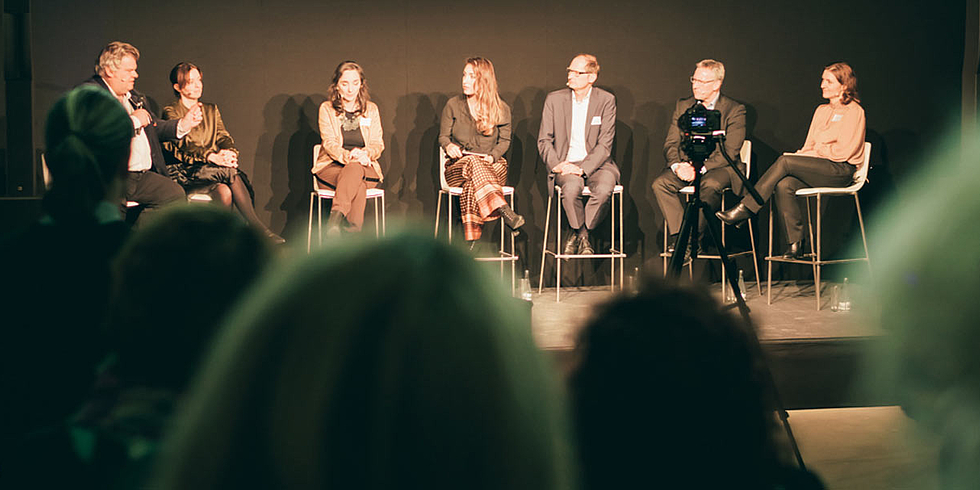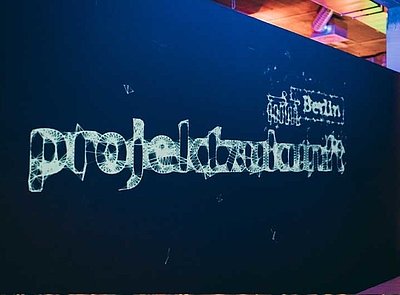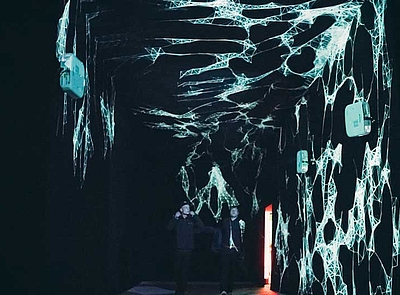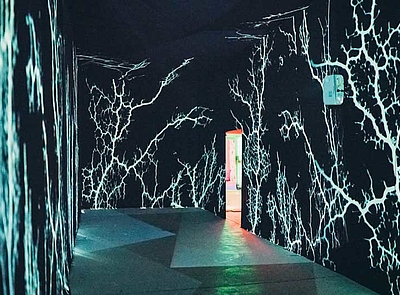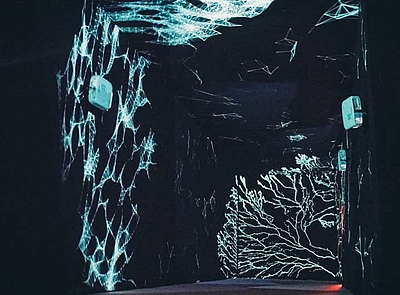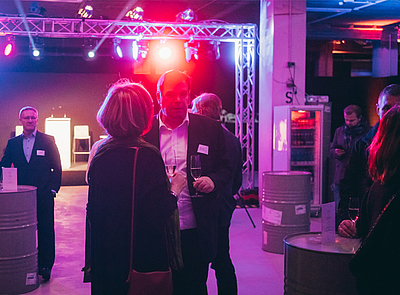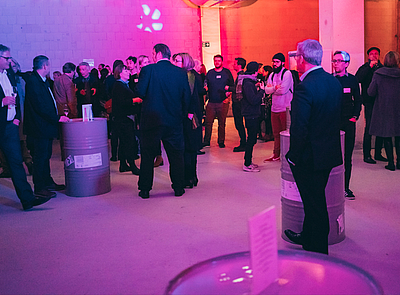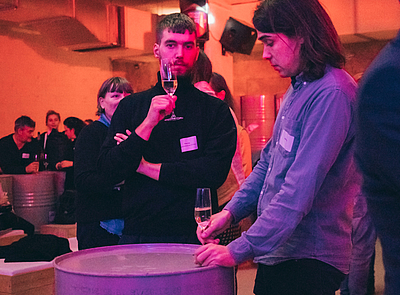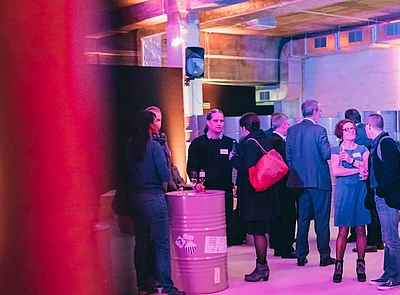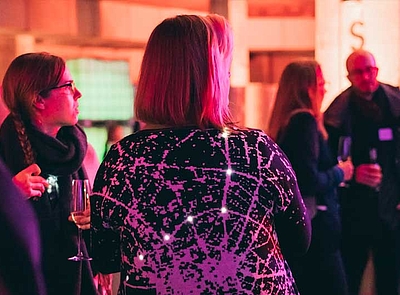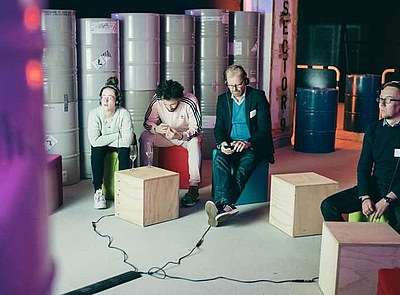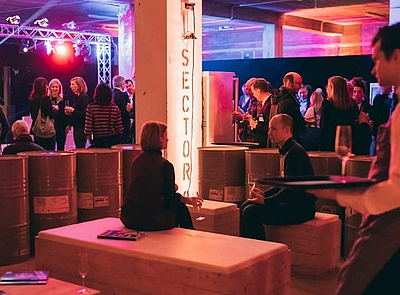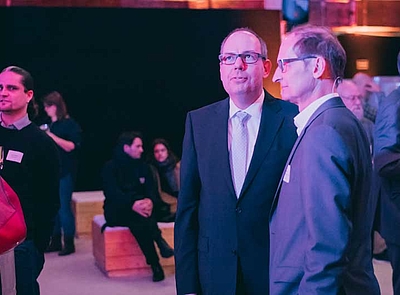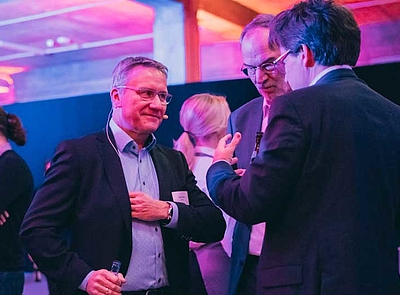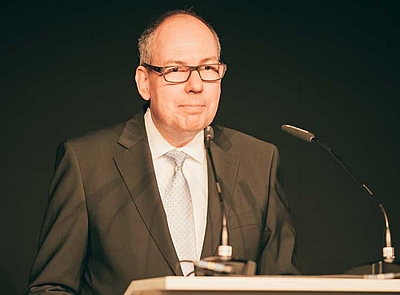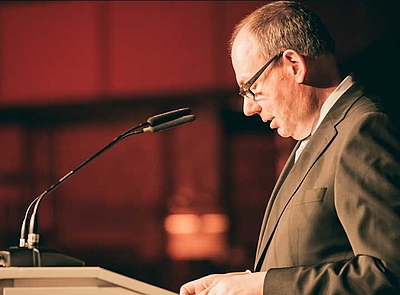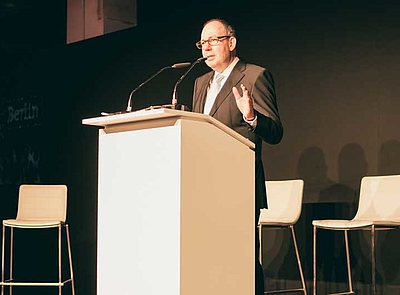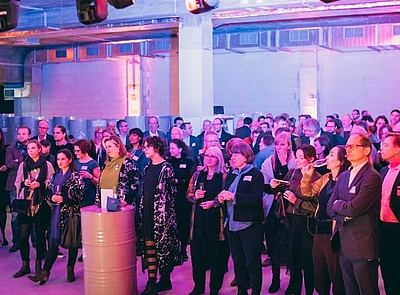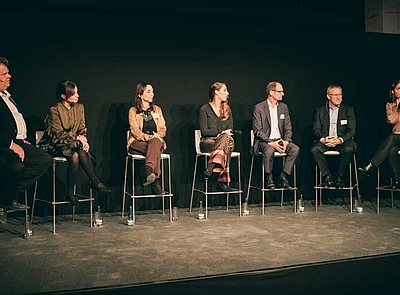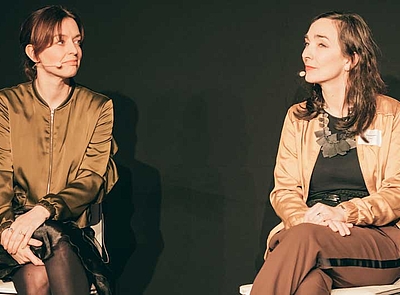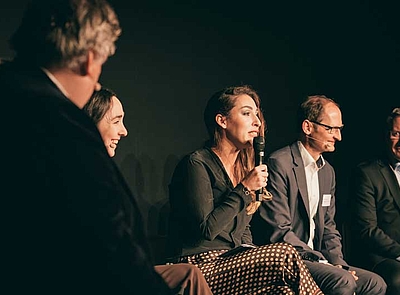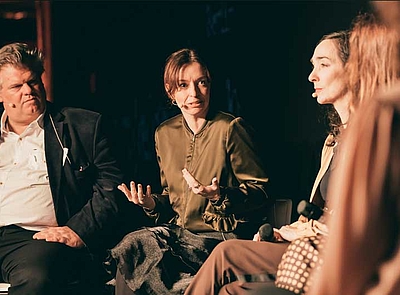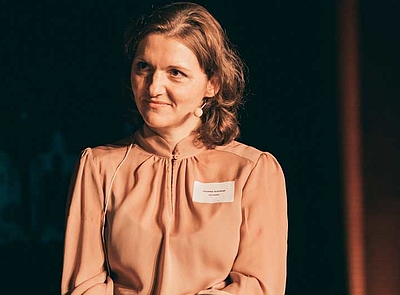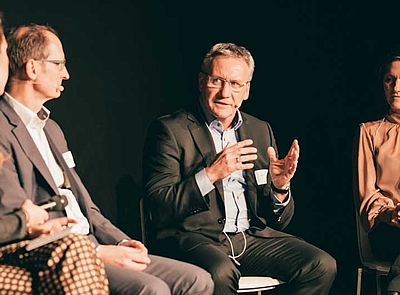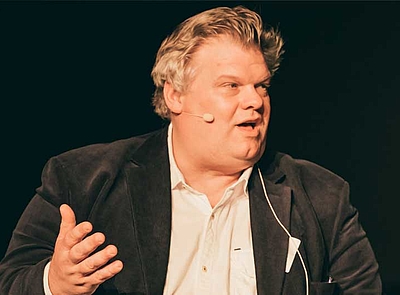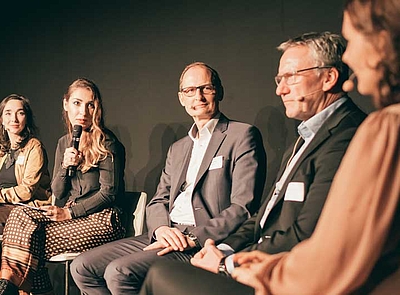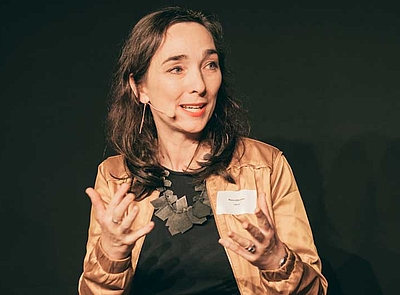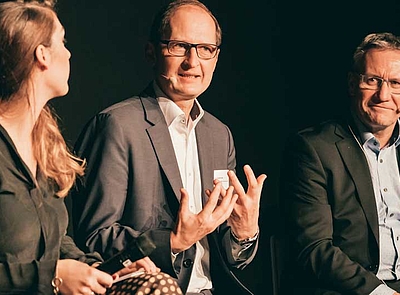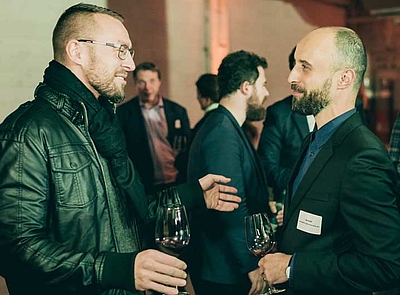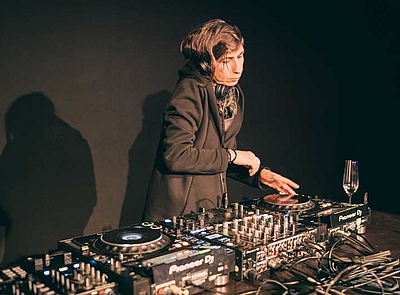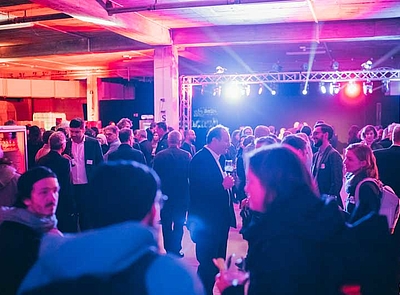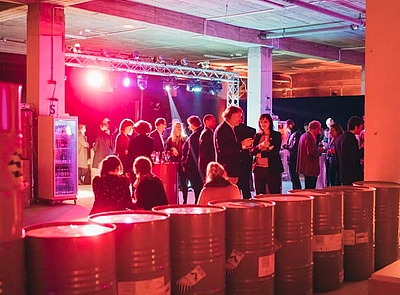Next stop: Future – Celebrating 20 years of Project Future
Next stop: Future – Celebrating 20 years of Project Future – looking to the future with confidence
To mark the 20th anniversary of their Project Future state initiative, the Senate Department invited representatives from the digital and creative industry to participate in a joint discussion about Berlin’s digital and creative future.
To kick off the event, which was dedicated to the interconnectivity of individual sectors, the guests were entering an impressive light and video installation designed by the Berlin artists Miguel Canal, Philip Krüger and Ivan Ayala. Inspired by the growth of fungus-like organisms, the team led by Miguel Canal demonstrated by means of computer-generated particles how digital swarm intelligence develops and behaves for the purpose of transmitting information. The project called “The Growing Mind” mirrors the process that is currently taking place in present Berlin in a very sophisticated manner:
The networking of individual industries creates new infrastructures, and swarm intelligence adapts to the city’s existing ecosystem and vice versa. Berlin is part of a dynamic living lab.
Permanent Secretary Henner Bunde was opening the event with a welcoming speech in which he was illustrating the origin and background of the Project Future initiative. Twenty years ago, the Berlin Senate founded the state initiative, aiming at paving the way for the city towards an information society and a creative, innovative and digital business hub. Considering that in 1997, just 14 percent of companies were represented on the internet with their own website, every second citizen desired electronic contact with the authorities, 35 percent of the population wanted to do online shopping and 30 percent were interested in using electronic banking, a change was necessary. Thus, Project Future became the first programme of the Senate Administration promoting digital transformation and cross-sector innovations – a transformation process that is taking place until this day.
Returning to the present, Bunde explained what the individual industries have been standing for over the past years: They represent above-average growth rates and effects on employment. In the past ten years alone, 8,000 new businesses were established, the turnover in the industry has been rising up to one billion Euro per year, and each year about 10,000 people have been employed just in the fields of ICT, media and creative industry. Twenty years after establishing Project Future this means that the digital and creative industry in Berlin today comprises more than 36,000 companies, generating a turnover of currently more than 30 billion Euros.
When asked why in particular Berlin was the living lab for the digital transformation, Permanent Secretary Bunde explained that the capital city provides excellent location factors – the best ecosystem, an outstanding science and research landscape, customized funding programmes and offerings as well as their digital infrastructure.
Bunde ended his welcoming speech by addressing the challenges we have to overcome in the future: “One of the challenges is the high pressure for companies and sponsors to adapt to permanent disruptive changes in the value chain and changing framework conditions. These things are much more short-lived than they were 20 years ago, when we launched Project Future. It is difficult to predict the complex nature of many topics and there is some uncertainty about what innovations and business models will prevail in the market. In order to overcome these challenges, it will be important to be confident and ready to assume risks.”
The main programme of the anniversary event was hosted by the founder of start-up affairs and Women in Digital e.V. , Tijen Onaran. She initiated a change in perspective, looking back on 20 years of Project Future. Partners from businesses and associations were discussing intensely about the topic of digitalization and innovation in Berlin. Within the context of the panel “Riding the wave into the future: Berlin Living Lab for the digital transformation”, Dr. Christiane Arnscheidt (GHT Mobility), Prof. Dr. Malte Behrmann (bbw University of Applied Sciences), Inga Bergen (Magnosco), Mona Rübsamen (FluxFM), Thomas Schröter (SIBB e.V.) and Dr. Jürgen Varnhorn (head of department for energy, digitalization and innovation) were discussing the impact and consequences of digitalization on Berlin as a business location.
Prof. Dr. Malte Behrmann is a professor at the bbw University of Applied Sciences, co-founder of the European Game Developer Federation and author of the book “In der Innovationsfalle – Überlegungen zu einer zukunftsfähigen Innovationsförderung”. As one of the significant consequences of innovation structures and innovation funding in Germany, he explains that innovation structures are blocking themselves in light of digitalization. “Society is very sceptical towards businesses. We are living in a great coalition of those who have a job. In Germany, insurable employment is considered as the highest ideal.”
Dr. Jürgen Varnhorn was the first on the panel to discuss the challenges of the city of being a living lab against a public backdrop. He said that public funding programmes could be seen as an opportunity in this context, provided that they do not limit the funding of innovative technologies. Instead, they should allow more freedom for new developments, such as developing new business models and social innovations. He emphasized that “In increasingly fast innovation cycles it is necessary to respond to innovations flexibly and at an early stage.”
“Is Berlin a living lab – an open-innovative ecosystem or rather a living label – more illusion than reality?” With this question, Tijen Onaran opened the debate about the ecosystem and location factors that Berlin provides for emerging and innovative start-ups. Dr. Christiane Arnscheidt (GHT Mobility), Inga Bergen (Magnosco), Mona Rübsamen (FluxFM) and Thomas Schröter (SIBB e.V.) were presenting their ideas to develop Berlin into a living lab of digital transformation and introducing their business as a best practice model.
Host Tijen Onaran ended the panel asking the panel members for their wishes concerning the future development of the digital and creative industry in Berlin. All panel members agreed on how the future of Berlin may look like in five years’ time: Berlin is already on the right path to establishing itself as a living lab for the digital and creative industry. However, in some cases, it would be desirable to see more cross-industry cooperation and to demonstrate “more courage to embrace greatness and success”.
The evening ended with drinks, flying buffet and a varied mix of music provided by DJane Ipek in the hall of Sector 9 in Berlin’s Underground.
The Senate Department for Economics, Energy and Public Enterprises would like to thank all speakers, participating start-ups and their guests for a successful evening.
Contact
Tanja Mühlhans
Management of Creative and Media Industry, Digital Economy, Projekt Zukunft
Impressions of the Event "Next stop: Future – Celebrating 20 years of Project Future"

